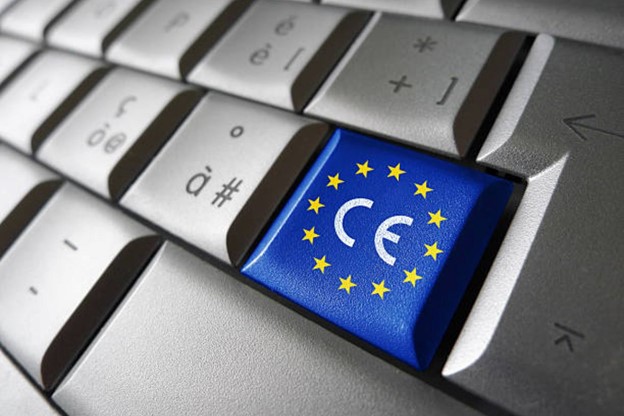Navigating the Complex Landscape of Medical Device Regulation
Key Insights and the Role of MDR Consultants
Over the past few years, a lot of changes have been observed in the regulatory scenario for medical devices and a major share is owed to the enforcement of Medical Device Regulation MDR 2017/745. It is intended to strengthen the safety and performance requirements for medical devices marketed in Europe. MEDDEV 2.7.1 Revision 4 can be used alongside MDR article 61 and provides invaluable advice on clinical evaluation, a key step of the conformity assessment process. In this article, we explore MDR 2017/745 deeply including the role of MEDDEV 2.7.1 Revision 4, why Notified Bodies are crucial, and how I3CGLOBAL can help through its team for early CE Certification!
Understanding MDR 2017/745
The EU’s Medical Device Regulation (MDR 2017/745) replaces the existing regulatory framework under the Medical Device Directive, MDD 93/42/EEC. The rule, which finally took effect last May 2021, sets new standards for manufacturers to maintain the safety and efficacy of their products. MDR 2017/745 At-A-Glance Points of Interest
Stricter Clinical Evaluation Requirements – Manufacturers must provide more clinical data to prove the safety and performance of their devices. This includes a clinical evaluation report (CER) based on your collected or identified clinical data and literature.
Active Post Market Surveillance (PMS): MDR requires that devices be actively monitored on the market after launch to promptly detect and mitigate latent risks.
Greater scrutiny of NBs: Notified Bodies that are responsible for assessing conformity have stricter designation criteria and ongoing advisory assessments to indicate their competency’s absence of interest.
Transparency and Traceability: The regulation also requires that manufacturers make extensive information about their devices available to the European Database on Medical Devices (EUDAMED) – furthering transparency. Both include traceability like Unique Device Identification (UDI)
MEDDEV 2.7.1 Revision 4 – What are We Waiting for?!
MEDDEV 2.7/1 Rev4 includes extensive directions to follow for undertaking clinical evaluations in an MDR 2017/745 compliant manner; It specifies how to collect, appraise and analyze clinical data to confirm the conformity of a device. MEDDEV 2.7.1 Revision 4 details the following major areas:
Equivalence: The guidance includes criteria for equivalence to be demonstrated between the investigational device and a non-investigational, similar – previously marketed – device. This is important to extract the clinical data already available.
Searching and Appraisal of the Literature: A systematic literature review to identify appropriate clinical data The parameters which form the appraisal process, are reviewing and rating whether this data has actual worth and symbolizes real-world experiences adequately enough that it can be included in clinical evaluation.
Clinical Evaluation Plan (CEP): Manufacturers must create a CEP including the approach and aims and spell out when clinical evaluation is being conducted. This is their plan for creating clinical evidence.
The Clinical Evaluation Report (CER) – this is a key document that provides an overall conclusion based on evaluating and analyzing the clinical data against risk vs benefit aspects regarding device safety and performance. New clinical data and PMS results should be integrated to maintain the up to date of it.
How Notified Bodies Come into Play
Notified Bodies serve as an integral part of the MDR 2017/745 conformity assessment process. They are independent organizations, designated by EU member states to assess the conformity of medical devices with regulatory standards. You have some responsibilities to do as an individual
Conformity Assessment: Notified Bodies perform detailed examinations of device design, the quality and manufacturing processes and clinical evidence to verify compliance with MDR. This includes reviewing technical documentation, auditing and testing.
Certification – The CE Marking for medical devices is delivered by the Notified Bodies after a positive assessment which allows the manufacturer to place its devices on the market in the EU. All of these certificates are issued for some expiry date and have to be Surveillance audited in every 6 months, here after they get renewed.
Notified Body Post-Market Surveillance Oversight – The NBs are there to make sure that manufacturers also keep up to date with any compliance standards as well. They also analyse reported incidents or adverse events associated with the devices.
I3CGLOBAL MDR Consultants: Navigating Regulatory Hurdles
For manufacturers, navigating the complexities of MDR 2017/745 and MEDDEV 2.7.1 Revision 4 can be daunting but understanding the first principles behind these changes will surely help in compliance efforts for all under-development products as well as legacy devices already sold to market or distributed still being used by patients globally! This is where the MDR consultants (such as I3CGLOBAL) play a significant role. Their experience and advice is invaluable in creating, establishing and maintaining regulatory compliance. MDR White-Glove Use Case The primary role of MDR consultants is as follows:
Regulatory Strategy Development: I3CGLOBAL helps manufacturers create full-scale regulatory strategies in line with their devices. From identifying applicable requirements and planning clinical evaluations to preparing technical documentation…
Clinical Evaluation Support: Consultants help with the systematic literature search, appraisal of clinical data and preparation of solid CEP’s &CERs. Their quality assures that the clinical evaluation complies with the MDR.
It acts as a mediator between manufacturers and Notified Bodies through MDR consultants. She works with audits, and regulatory questions and makes sure paperwork is submitted on time.
In-Service Compliance: Consultants assist manufacturers in setting up useful PMS systems, conducting risk assessments and ensuring they remain compliant with post-market reporting requirements.
Conclusion
To counter this the Proposed EU MDR 2017/745 and recommendations in MEDDEV 2.7.1 Revision 4 have raised substantially the bar on safety as well as the performance of medical devices within the European Union market, It also requires more stringent clinical evidence, ongoing post-market surveillance and a higher level of oversight over Notified Bodies.
In such a scenario, the demand for a Medical Device Regulatory Consulting Company like I3CGLOBAL is indispensable. Manufacturers rely on their experience and advice to navigate the regulatory complexities, comply with FDA regulations and bring medical devices that safely save lives. By complying with these rules and utilizing professional help, the medical device industry can continue to innovate but also maintain high-quality patient safety care.


